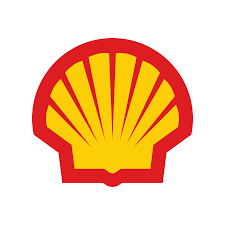
Shell
View Brand PublisherThis year’s Shell.ai Hackathon is harnessing the power of the sun for a brighter future
The world faces an urgent challenge. How does it tackle climate change and move to a net-zero emissions energy system while also meeting the growing demand for energy? Over 50 billion tonnes of CO2 emissions are emitted every year in the atmosphere, which makes the need for cleaner energy urgent.
Shell is transforming to become a net-zero emissions energy business by 2050, in step with society and customers. To achieve this, they have been exploring new opportunities to provide more low-carbon energy such as biofuels, hydrogen, charging for electric vehicles and electricity generated by solar and wind power. Leveraging technology, Shell is collaborating and working on early-stage ideas that could impact the future of energy.
Innovative technologies, including digital and AI, play a critical role in achieving a net-zero emissions future. They can make it possible to design and operate entirely new energy systems at the device, plant and regional scales – transforming the carbon footprint of these industrial processes. Digital technologies can also provide the tools and mechanisms for optimising the energy efficiency of operations and enabling the sharing economy; they can improve the accuracy of greenhouse gas emissions tracking and transparent reporting across supply chains, and make the monitoring of carbon offsets more effective.
Shell wants to leverage solar energy as it is one of the fastest growing sources of renewable energy. In a world where the rising population will lead to more energy consumption and demand, solar energy can be a boon to many organisations and consumers. However, one of the biggest challenges in harnessing solar energy is its dependence on weather conditions. Predicting how the sun shines during the day is key for grid operators to balance energy generation and consumption. The intermittency of solar power, resulting from cloud coverage can significantly bring down power production. Other factors such as ambient temperature, humidity, and wind speed can also affect the PV temperature and power output.
While Shell has been working on predicting the weather, there is still considerable room for improvement and making an impactful change. Shell is excited to launch this year’s Shell.ai Hackathon for Sustainable and Affordable Energy dedicated to the prediction of solar power forecasts in short timescales using data-driven models (AI).
An introduction
Shell, Nvidia and Microsoft, with support from SINE (IIT Bombay) and NIRMAAN (IIT Madras), are launching AI Solar Power Prediction Challenge that will focus on leveraging AI for predicting solar power output using historical sky camera images and weather data. The aim of the hackathon is to inspire open innovation and create out-of-the-box solutions for energy problems. The hackathon is open for all individuals and teams (general edition) as well as registered startups (special startup edition). For all participants - both startup as well as general teams - the partners will organise mentorship sessions and training bootcamps to help them decode the challenge.
Why you should participate
By participating in this hackathon, you can meet and work with new people, come up with innovative ideas, learn more about Shell’s work towards sustainability and help increase the share of solar energy in the energy mix. You can win exciting awards and, in the special startup edition, incubate your ideas and develop your products with Shell’s GameChanger (with up to $150,000 funding), Microsoft Incubation Hub or potentially SINE (IIT Bombay) and NIRMAAN (IIT Madras) incubation cells. The hackathon doesn’t just aim to mentor teams and startups, but also sows the seeds for a cleaner energy future. As participants, you will get to be a part of this huge opportunity that could change the way the world consumes energy.
Points to be noted:
- The hackathon is open for registrations until November 7.
- Anyone, other than Shell, Microsoft or Nvidia staff, contractor or intern can participate in the general edition of this hackathon. You can have any qualifications, be a working professional, freelancer, or on a career break, a student of any college or citizen of any country.
- In the special startup edition, you can only participate as an established and registered startup with a minimum of two members. One person can only participate in one of the two editions.
- The submissions will be evaluated in real-time. The evaluation criteria is based on the Mean Absolute Deviation of your predictions from the actual outcomes. The public leaderboard will be visible throughout the competition and the private leaderboard is used to shortlist teams for the second level, and would be made available post the final day award ceremony.
- The total number of submissions allowed by each participant or team member is 2,000. The maximum number of submissions each participant or team member can make in a day is 100.
If you think you can make a difference, click on this link to register. Visit shell.com/hackathon for more information.







